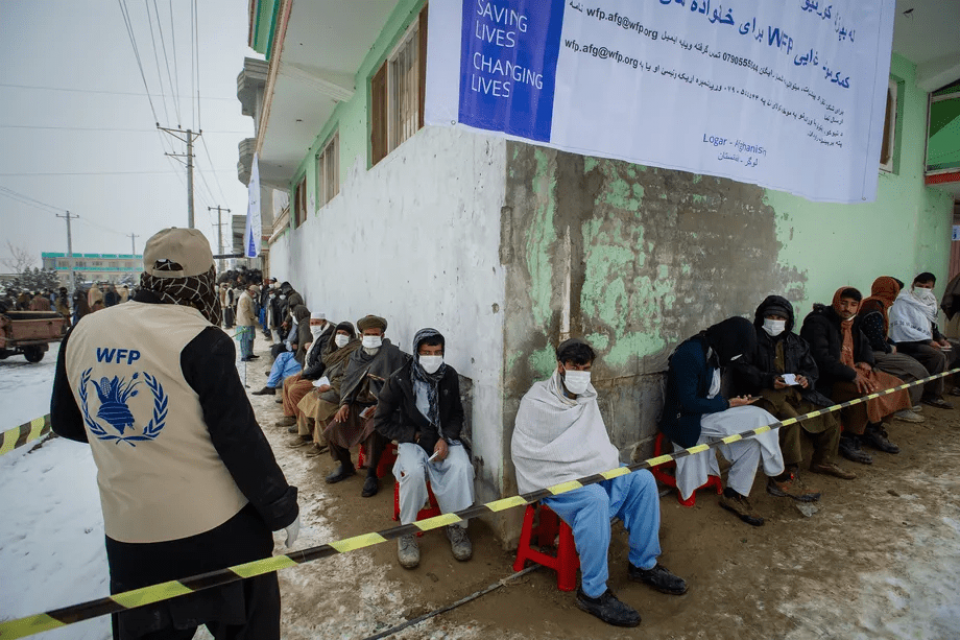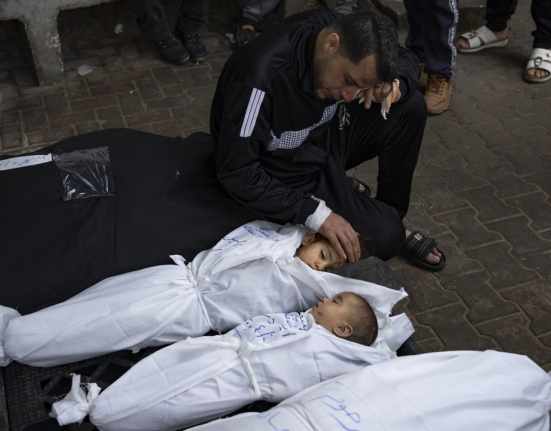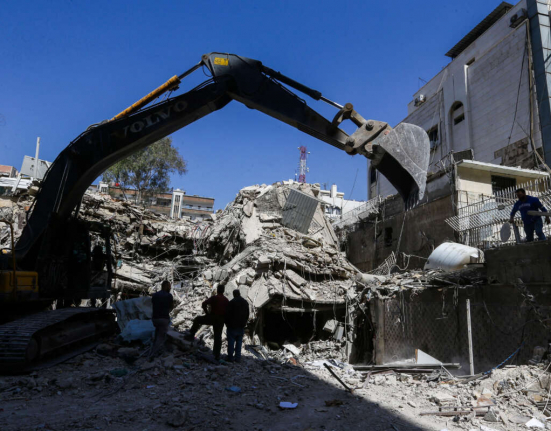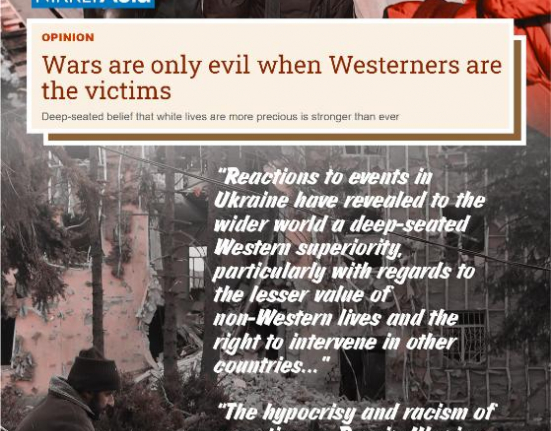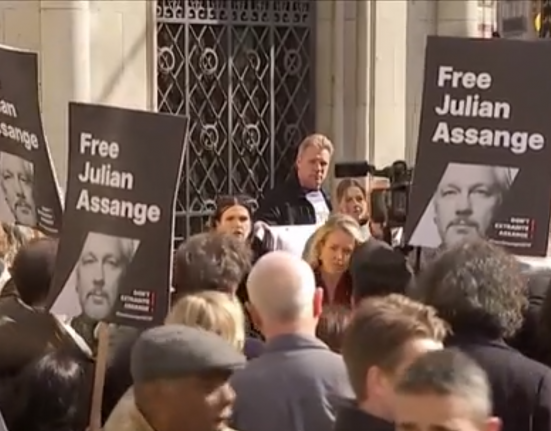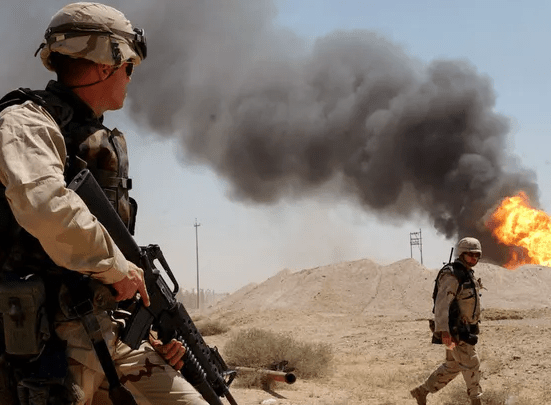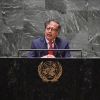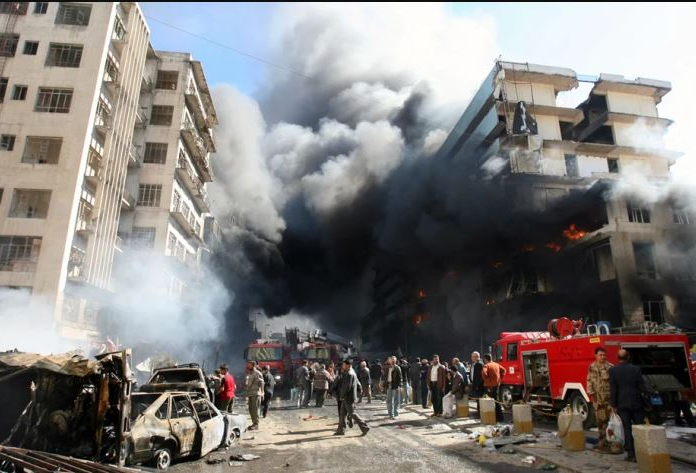by : Ellen Ioanes
More than five months after the fall of Kabul, the Afghan economy is on the brink of collapse, leaving millions of people at risk of extreme poverty or starvation. One major culprit: the US decision to halt aid to the country and freeze billions in Afghan government funds.
The scope of the humanitarian crisis facing Afghanistan is massive: According to UN Secretary-General António Guterres, “virtually every man, woman and child in Afghanistan could face acute poverty” without massive investment from the international community and a concerted effort to rebuild the nation’s economy.
Guterres spoke to reporters regarding the scale of the crisis during last week’s launch of the UN’s funding drive for Afghanistan — the largest ever fundraising appeal for a single country. The organization is requesting more than $5 billion in aid to help the Afghan people, both inside the country and in refugee camps in bordering nations like Uzbekistan and Pakistan.
Prior to the fall of Kabul in August 2021, the Afghan economy relied heavily on foreign aid; after the Taliban takeover, that influx of cash ceased. Under Taliban rule, unemployment is rampant and banks operate intermittently, with people able to withdraw no more than $100 in a month. On top of that, the US froze much of the $9.4 billion in Afghan currency reserves in Afghanistan’s central bank in August — a move which has functionally cut the country off from many foreign banks and left the Central Bank of Afghanistan unable to access its reserves and shore up the country’s cash flow.
Now, much of the country is facing poverty and starvation: In December, the World Food Program (WFP) found that 98 percent of Afghans aren’t getting enough to eat, and Guterres warned this month that “we are in a race against time to help the Afghan people.”

Specifically, Afghanistan’s economic collapse means many people, including some members of the Taliban, can’t afford to buy food. In the aftermath of the US withdrawal, many Afghans working as interpreters, aid workers, prosecutors, professors, and journalists suddenly lost their positions and their incomes, and many have been forced into hiding, further hampering their ability to provide even the most basic necessities — blankets, food, fuel, and medicine — for their families.
Freezing temperatures are also forcing families to make critical choices between food to sustain their families and fuel to keep them warm in the bitter winter months. “Everywhere we go, we find thousands more people who need help,” Babar Baloch, a spokesperson for the Office of the UN High Commissioner for Refugees, told the Washington Post earlier this month. “They haven’t been driven from their homes, but they have lost their jobs, they have no savings, and their life systems are in collapse. They are not on our lists, but they come and wait outside the distribution sites, saying, ‘What about us?’”
“Everything is connected. The government has collapsed, people have no salaries, and the economy has gone to zero,” Shahwali Khan, a vendor in Kabul, told the Post. “People can’t afford to buy now, and we can’t afford to sell.”
US policy is helping drive Afghanistan’s humanitarian crisis
Many of Afghanistan’s current problems are intimately connected to the US withdrawal from the country last year, and the Taliban’s ensuing takeover of the central government. Since then, US sanctions and an abrupt end to international aid have wrecked Afghanistan’s economy and sent it spiraling into crisis.
The US and the UN have made some concessions to allow humanitarian aid to operate outside the auspices of the Taliban; the Treasury Department’s Office of Foreign Assets Control (OFAC) granted some licenses to aid groups to operate in Afghanistan without running afoul of financial restrictions on other individuals and institutions in the country.
But, as experts have said, it’s not nearly enough to bring the Afghan people anywhere close to the needed aid, and regardless of the OFAC licenses, the Afghan banking system is still essentially held hostage by US sanctions against the Taliban.
“Sanctions are intended to have a chilling effect, in that sanctions will always go beyond the face of the text,” Adam Weinstein, a research fellow with the Quincy Institute for Responsible Statecraft, told the Intercept in December. Banks and businesses don’t want to risk dealing with places or sectors under economic restrictions from the US, for fear that they’ll violate a prohibition and be subject to sanctions themselves, Weinstein explained.
To that end, more than 40 members of the Congressional Progressive Caucus sent a letter to President Joe Biden last month, urging him to release the frozen currency reserves of the Central Bank of Afghanistan.
“No increase in food and medical aid can compensate for the macroeconomic harm of soaring prices of basic commodities, a banking collapse, a balance-of-payments crisis, a freeze on civil servants’ salaries, and other severe consequences that are rippling throughout Afghan society, harming the most vulnerable,” the letter warns.
So far, however, no policy shift has been forthcoming. As of earlier this month, the US has pledged an additional $308 million in humanitarian aid to Afghanistan, but the Afghan central bank reserves remain frozen. While some aid is getting to Afghans via the UN Office for the Coordination of Humanitarian Affairs and the WFP, those organizations often have stringent requirements regarding who qualifies for aid. In a nation on the brink, many who are in desperate need don’t qualify for aid because they don’t fit the program’s focus area or because they’re not poor enough.
And while Afghanistan’s current crisis isn’t wholly caused by external factors — even without sanctions by the US and its allies, the Taliban’s inability to manage the bureaucracy of government would have created issues, as would the pandemic and a severe drought that began in June last year — US actions do play a substantial role.
The chilling effect of sanctions is keeping businesses and banks from actually engaging with the economy. As House Democrats pointed out in their letter last month, relatively simple steps — like issuing letters to international businesses assuring them that they are not violating US sanctions — could help alleviate the crisis and shore up the Afghan private sector, but the US Treasury has yet to do so.
“Restoring a minimally functioning public sector and stopping Afghanistan’s economic free-fall will require lifting restrictions on ordinary business and easing the prohibition on assistance to or through the government,” Laurel Miller, director of the International Crisis Group’s Asia program, wrote in a New York Times op-ed this month. “Without that, there’s little hope that humanitarian aid can be more than a palliative.”
Humanitarian aid, at least on a large, international scale, doesn’t seem to be forthcoming, either; the UN’s Financial Tracking Service shows less than $29 million of the $4.4 billion needed to keep Afghanistan from disaster has been funded so far.
In the meantime, the Taliban will hold talks this coming week with Western nations, including Norway, the UK, the US, Italy, France, and Germany, about humanitarian aid. The talks should not be seen as a legitimization of Taliban rule, Norwegian Foreign Minister Anniken Huitfeldt stressed to AFP on Friday, “but we must talk to the de facto authorities in the country. We cannot allow the political situation to lead to an even worse humanitarian disaster.”
UN Emergency Relief Coordinator Martin Griffiths echoed that sentiment in his initial call for donations last week, saying that unless the Afghan economy can recover and begin to provide for people, the crisis will only worsen. Without aid now, Griffiths said, “next year we’ll be asking for $10 billion.

